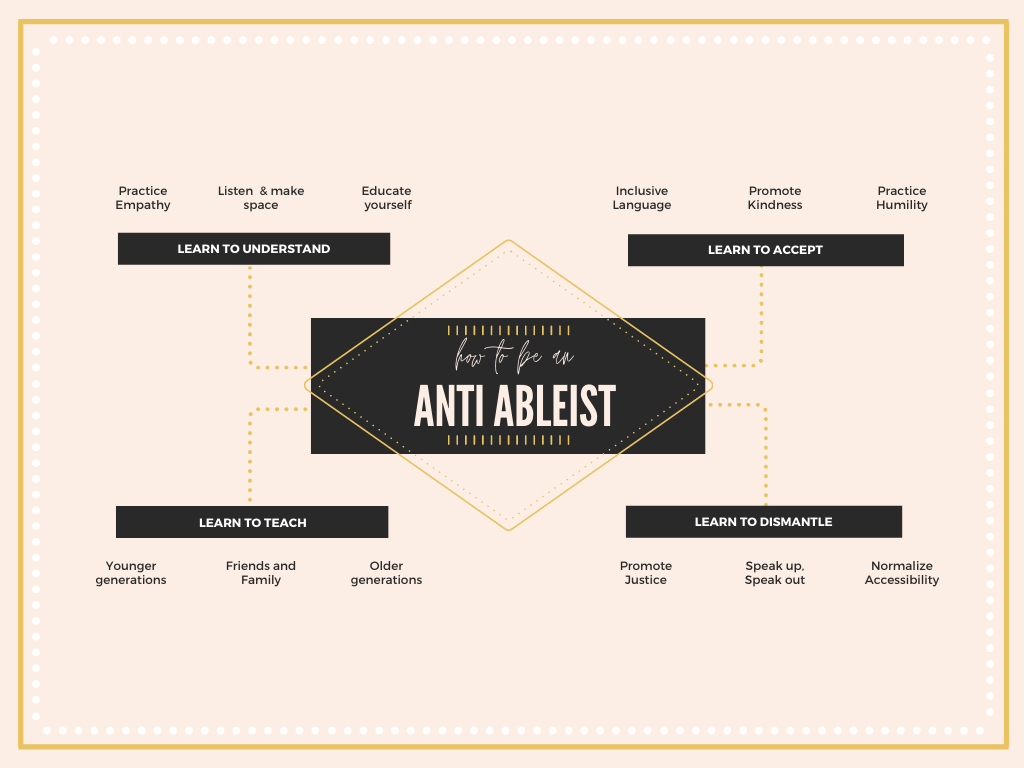Cognitive Psychology can Inform your Anti-Ableist Practice

In Part 3 of this e-book, student authors’ work is presented in sets of three essays, each aimed at answering the unit questions [How did that get into my head? What is it, that’s in my head? How do I control what’s in my head?] as they pertain to ableism. In two sets of collaboratively written essays students explain how seeds of ableism are planted in our minds by virtue of living in a culture designed for persons who are able-bodied and neuro-typical. While students explain the natural process of how ableist-bias is established, they additionally explain how, with deliberate attention and practice we can change our mental habits. When we address our own implicit tendencies, we become better prepared to help others do the same. As with the theme of anti-racism, in our class discussions we considered that being anti-ableist is a practice, much like yoga is a practice. Both are difficult, but with regular work and dedication we improve. While each collaborative team studied the same course content, each team personalized their writings in different ways. You are sure to learn something new from each chapter inclusion.
